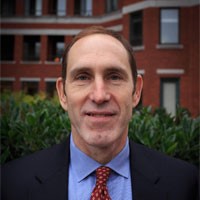By Desiree Griffin-Moore, Executive Director, Prince George’s County
Growing up in the DC area, I have seen the city transform from a small sleepy government town to become the principal city of a major metropolitan area comprised of more than 6 million people. As the seat of our nation’s government, this area has grown exponentially and is quickly being recognized as a bastion for economic growth by corporations and private markets.
Throughout the city and its surrounding areas, new developments and increasing interest from corporations, including Amazon, are stimulating the region’s economic growth and prosperity and creating new jobs and new business endeavors for many. Still, questions arise such as: Who is benefiting from this growth? How do traditionally marginalized communities gain access to these opportunities? Can the field be leveled and if so, how?
Our Voices of the Community survey of more than 3,400 local residents found that:
Nearly one in five residents has faced some form of housing or food insecurity in the past 12 months, and that increases to one in three people for our region’s black and Hispanic populations.
The cost of living, especially renting or owning a home, is one of the most challenging aspects of our region. Nearly a third of people knew someone in the region who had to move in the past two years for a reason other than their own choice, typically due to high housing costs or job loss.
Nearly a third of Prince George’s County and Montgomery County respondents rated access to education and training as a “major” barrier to finding a job.
The region’s explosive growth is now extending into Prince George’s County as corporations are seeing the County, its people and its land as valuable assets. As a native Washingtonian, and currently a Prince George’s County resident, I am seeing history repeating itself. While I am excited by the growth and celebrate the decisions of companies like MGM, National Harbor, Washington’s professional football team, and others, to relocate here, I also find myself worrying if the displacement of people that took place as a result of the growth in DC will now duplicate itself in Prince George’s County. Will families who have called Prince George’s County home for generations and contributed to its vitality suddenly find themselves fleeing because they can no longer afford to live here? Are there ways to thoughtfully encourage growth and, at the same time, ensure that the fabric of our communities remain intact?
The racial and economic inequities that continue to plague our entire region could hinder our progress unless our area’s business, community and philanthropic leaders work together to address these challenges and advance racial equity and inclusion.
The Greater Washington Community Foundation is tackling these issues by prioritizing strategic partnerships across sectors and developing new approaches to address the region’s most pressing challenges. With more than 45 years of community-based philanthropy experience, our knowledge of local needs and the most impactful nonprofits provides our corporate partners with important connections which are essential to their success. For example, you can read about how our partnership with MGM National Harbor expanded its ability to support and enhance the surrounding community in Prince George’s County.
We continue to play an important role by leveraging our relationships with businesses, nonprofits and local communities to help broker new partnerships that will ultimately provide necessary community input, diverse voices and broader perspectives as development continues to take place. In my years of service to this community and region, I have found that the relationships which emerge through these partnerships are essential .
Desiree Griffin-Moore joined The Community Foundation in September 1998 as executive director of The Community Foundation in Prince George’s County where she has provided leadership in strategic giving, development, and donor engagement activities. A committed advocate of civil rights and social justice, Desiree has extensive experience working with the nonprofit sector to advance low-income and marginalized communities.





